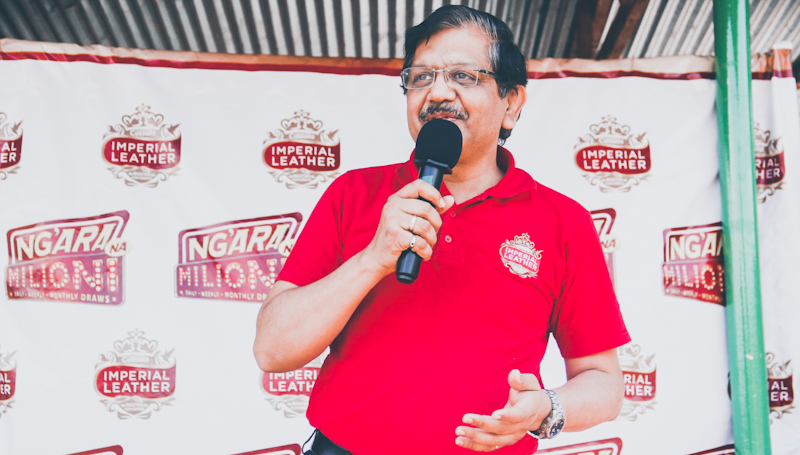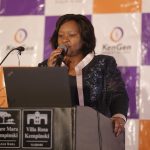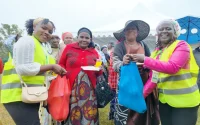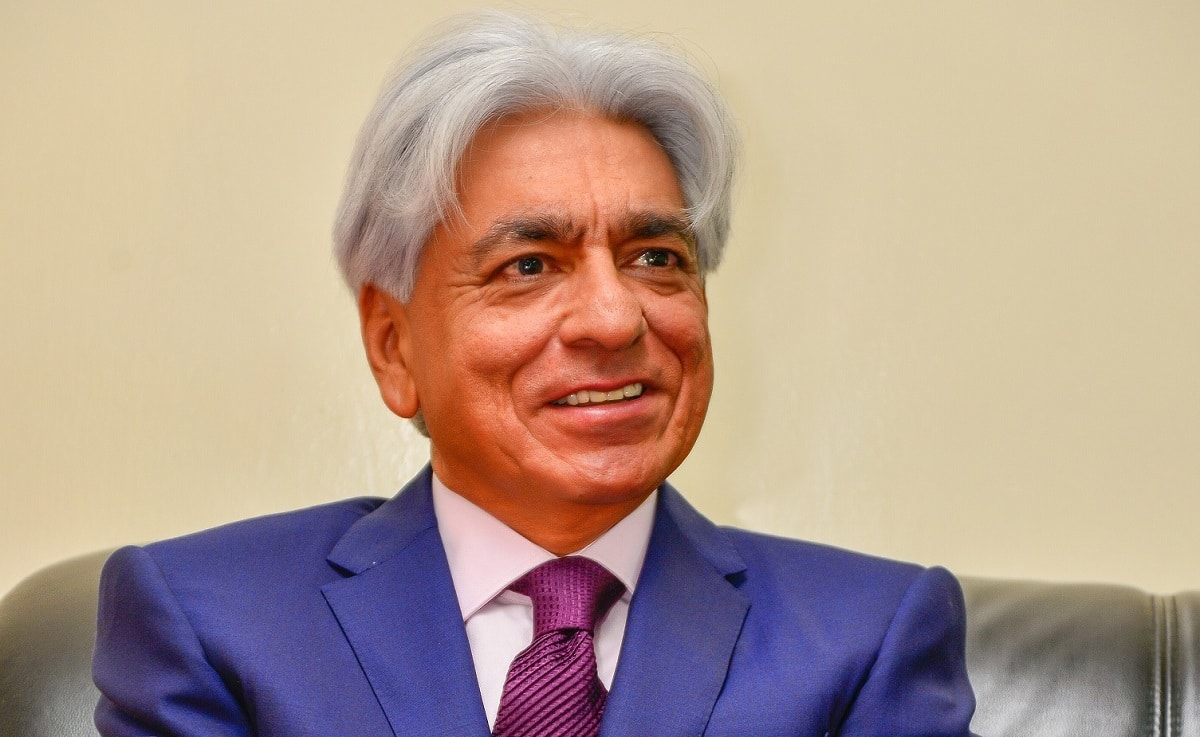PZ Cussons East Africa has under its umbrella some of Kenya’s most well known personal and homecare brands – staples in many homes such as Imperial Leather, Morning Fresh and Carex.
Manufacturing, like all other sectors, was impacted by the pandemic in Kenya. Commendably, PZ Cussons retained all its employees despite a tough operating environment. The firm also adapted to the pandemic in various ways, including establishing the world’s first manufacturing plant for Carex hand sanitizer in Kenya and supporting various community initiatives.
Business Today had a chat with Managing Director Sekar Ramamoorthy on business, Covid-19, manufacturing, vaccines and more.
BT: PZ Cussons is known for iconic personal care and homecare brands such as Imperial Leather. What did the Covid-19 pandemic teach you about your customers especially with ‘the new normal’?
SR: Imperial Leather is the flagship brand of PZ Cussons, having been manufactured for more than 200 years with our story beginning in 1798 when Count Orlof, a member of the wealthy Russian aristocracy, asked a London perfume house to create a fragrance that captured the distinctive aroma and atmosphere of the Russian Court. Brought about by the musk fragrance from the fur coats worn by the members of court.
In Kenya, PZ Cussons has operated for close to 60 years, and has over time brought on board other brands including Cussons Baby, Venus, Morning Fresh and Carex ranges to ensure we can serve our consumer needs appropriately.
The Covid-19 pandemic impacted various facets for the PZ Cussons family. On one hand, there was dampened demand in the second and third quarters by as much as 12 per cent. However, in the fourth quarter we saw some recovery that mitigated the initial downward trend and rising by more than 5 per cent.
As a company we responded to the opportunity of sanitizers by establishing the first ever manufacturing of the globally acclaimed Carex brand here in Kenya. We also partnered with Rotary International to educate the general public about better personal grooming in line with the World Health Organization (WHO) recommended guidelines.
BT: Is the focus on hygiene among other precautionary measures something you sought to amplify?
SR: PZ Cussons believes that personal grooming and a strong sense of hygiene is paramount for every individual. We partnered with Rotary International in a campaign dubbed ‘Caring for Kenya’ in which we have worked with local communities in urban areas to highlight the need for a consistent hygiene regime.
It was not lost on us that only 14% of Kenyan’s have access to proper handwashing stations and only 29% have access to sanitary services. We sought to be part of the solution with a campaign where as PZ Cussons, we donated Ksh.10 for every pack of soap bought accumulating approximately Kes 5m that will go towards implementing a water and sanitation facilities project in Baba Dogo in Ruaraka estimated to benefit 500,000 thousand people.
SR: What did it all mean for business? – Has the ongoing national consumer campaign for Imperial Leather impacted sales?
Ans. PZ Cussons did not lay off any staff as a result of the resilience program that we had set in place. In order to ensure the plant was running smoothly, we instituted additional shifts and reduced the people working on each shift in order to observe social distancing. We also changed the logistics in order to limit contact by ensuring that the distributors collected their stocks on a differentiated calendar.
The National Consumer promotion helped us cushion and reward users of our products with much needed cash awards and functional electronic appliances at a time when disposable incomes had declined.
BT: Has Covid-19 forced a rethink of your long-term strategy and goals?
SR: PZ Cussons has maintained a strategic shift to position itself beyond being known as a home of superior personal grooming brands that cater for the modern woman and man. There is something for everyone who needs quality grooming from their hair to feet.
Covid 19 has shown the general population that it is critical to maintain a high hygiene and this has replicated in the personal grooming practices where for instance people now shower and clean more frequently. This has shone a light on the brands that perform in this category, including our flagship Imperial Leather. In order to leverage this trend, we have been running a national consumer campaign to educate the public and build a stronger sense of alertness.
BT: With all the clamor for local manufacturing and increased focus on it, how do you think manufacturing firms in Kenya can be supported to operate and thrive especially in this operating environment?
SR: We are glad to know that the Kenya government has an intention to boost manufacturing through implementing the Big 4 agenda. This country has two factors that will work very well for a better manufacturing environment- an educated workforce and a large potential market for its products. The Eastern African region alone, which comprises Kenya, Uganda, Tanzania, Rwanda, Burundi, Ethiopia and South Sudan, has a population of more than 200 million people. And with the ratification of the African Continental Free Trade Area, the potential market shoots to more than 500 million people.
But for these markets to be addressed effectively, a number of measures need to be put in place. Most of them are non-tariff barriers including better infrastructural networks, lower cost of energy, and faster border crossing. There are also some tariff barriers that have recently been introduced and these are licensing requirements in the counties for instance that increase the cost of doing business. We need a better licensing regime that reduces and refines operational fees. Energy costs for example need to come down by at least 40 per cent while licenses and fees need to be reduced by at least half to give the necessary impetus to manufacturing in Kenya.
There is also a great challenge of dumping where local traders import cheap, poor quality products into the market. These rob the country of much needed tax revenue while exposing the general population to health risks. We need stronger quality enforcement and an affirmative protection of local industries which employ people directly and indirectly.
BT: You have worked in similar roles in other territories and markets. What is something you would you say is unique to Kenya or East Africa? What major differences have you noticed compared to West Africa or India for example?
SR: Each region has unique aspects. At the core of it is the different cultures in Western Africa, Asia and East Africa. These cut across elements such as work ethic, food, education and even the depth of tradition in urban settings. East Africa is unique because of the extensive use of English and Kiswahili languages especially in Kenya, Tanzania, Uganda to conduct business though this now extends to Rwanda, Burundi, Somalia, Eastern Congo and South Sudan. Education and international exposure also plays an important role in the way people behave and relate in these markets.
We realize that the level of exposure in Kenya is much higher than the other East African nations, thereby creating the impression that Kenyans are the drivers of early adoption as far as global trends are concerned, be it in fashion, music, arts and even sports. This impact is also felt in education, work and enterprise.
BT: A lot of people in business globally are counting on the vaccines to turn around the tough operating environments. What are your expectations and your thoughts on the roll-out in Kenya and EA?
SR: We are glad that Kenyans are now getting vaccinated. Medical experts have assured us that people who have been vaccinated have a lower chance of transmitting the disease and a higher chance of survival in case they get infected.
It is important for everyone therefore to be vaccinated. It is crucial that the front line workers and people of high risk age receive their vaccination quickly. Since we know that market centers are also high risk areas, I would expect that the people in these areas will also be given high priority. Therefore, it would help if there is a mechanism for the vaccination exercise to be taken to the people where they are, instead of just waiting for them to show up the hospital for it.
BT: What would you say is your outlook for 2021? Why is it positive or negative?
SR: From the beginning of the year 2021, we were beginning to have a highly positive outlook for the economy, with some sectors such as education, transport and hospitality showing remarkable speed of recovery.
But with the third wave and subsequent lock down, this potential has been thrown into disarray and whatever gains had been achieved in the first quarter of 2021 will quickly disappear in the second quarter. We expect a slowdown in recovery this year even if the lock down is lifted after one month. The signaling that a lock down sends in a fragile economy just recovering from last year’s devastation is very negative and is likely to cause a considerable reduction in overall consumer spending.













Leave a comment